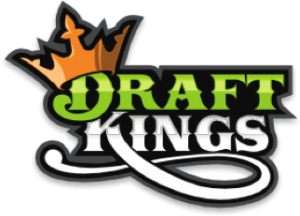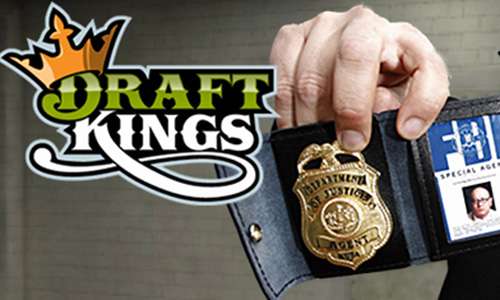DoJ, FBI Investigating Legality of DFS
The backlash against daily fantasy sports (DFS) continues this week, as now, according to the Wall Street Journal, the U.S. Department of Justice (DoJ) and the Federal Bureau of Investigation (FBI) are looking into whether or not DFS sites are actually legal.
The probe is just the latest fallout following an incident from a couple weeks ago where Ethan Haskell, an employee for DraftKings, one of the two DFS giants, inadvertently posted NFL player usage statistics on the DraftKings blog before all of the weekend’s games had begun. He also won $350,000 in an NFL contest on rival site FanDuel that same weekend, leading people to believe that he both had access to non-public information and used it to his advantage on FanDuel. Both DraftKings has said that after an investigation, it was found that Haskell did not gain access to the information until 1:40pm, 40 minutes after his and all teams in his FanDuel contest had locked, so he could not have gained any unfair advantage. FanDuel has also said that everything is kosher.
 Whether people believe their stories or not, Pandora’s Box has been opened. Now that it is known that it is possible for someone at a DFS site to have access to “insider” information, the legitimacy of the contests is in question. That, combined with statistics that have indicated that a very small percentage of players win a very high percentage of the money on these sites and how tired people are of the incessant DraftKings and FanDuel commercials, has created a tidal wave of hate towards the daily fantasy industry. Politicians are calling for hearings, Attorneys General are conducting investigations, national media has piled on, and now the feds are joining the fray.
Whether people believe their stories or not, Pandora’s Box has been opened. Now that it is known that it is possible for someone at a DFS site to have access to “insider” information, the legitimacy of the contests is in question. That, combined with statistics that have indicated that a very small percentage of players win a very high percentage of the money on these sites and how tired people are of the incessant DraftKings and FanDuel commercials, has created a tidal wave of hate towards the daily fantasy industry. Politicians are calling for hearings, Attorneys General are conducting investigations, national media has piled on, and now the feds are joining the fray.
The WSJ reports that the federal investigations are in the very early stages, but Boston-based FBI agents have begun contacting DraftKings customers to ask them about their experiences (DraftKings is headquartered in Boston). Not sure what they are going to get from that, but I guess it’s a start. “Yes, I have played on DraftKings. Yes, I won some money/Yes, I lost some money. I drafted players and rooted for them to do well. Yes, it was fine.”
The odd thing, to this writer at least, is that the apparent goal of these probes is to see if daily fantasy sports violate federal law. I mean, unless I am totally missing something, they don’t. The Unlawful Internet Gambling Act of 2006 (UIGEA), as we have all heard a million times by now, explicitly excludes the participation in fantasy sports from being classified as a “bet” or “wager.” And since the Act defines “unlawful internet gambling” as “to place, receive, or otherwise knowingly transmit a bet or wager by any means which involves the use, at least in part, of the Internet where such bet or wager is unlawful under any applicable Federal or State law….” it certainly appears that fantasy sports are totally legal (except, of course, in states where there are laws explicitly against it, but that’s not what the investigation is about).
Let’s look at the exact carve-out for fantasy sports in the UIGEA:
(ix) participation in any fantasy or simulation sports game or educational game or contest in which (if the game or contest involves a team or teams) no fantasy or simulation sports team is based on the current membership of an actual team that is a member of an amateur or professional sports organization (as those terms are defined in section 3701 of title 28) and that meets the following conditions:
(I) All prizes and awards offered to winning participants are established and made known to the participants in advance of the game or contest and their value is not determined by the number of participants or the amount of any fees paid by those participants.
(II) All winning outcomes reflect the relative knowledge and skill of the participants and are determined predominantly by accumulated statistical results of the performance of individuals (athletes in the case of sports events) in multiple real-world sporting or other events.
(III) No winning outcome is based—
(aa) on the score, point-spread, or any performance or performances of any single real-world team or any combination of such teams; or
(bb) solely on any single performance of an individual athlete in any single real-world sporting or other event.
It is likely true that the crafters of this carve-out did not foresee DFS, but this carve-out is also what the DFS sites use to shape their services. In analyzing the above, we know that the introductory paragraph obviously applies to DFS – fantasy teams are made up of players from different real-life teams, unless a participant drafts a strange team with all Miami Dolphins or something (in which case that person would lose horribly).
As for the three conditions, DFS meets all of them. Condition (II) is straight-forward. Condition (III) is, as well. DFS outcomes are based on the collective performance of players drafted on a team, not on the performance of a single player or on the actual results of a real-life team.
Condition (I) is the only one up for any sort of interpretation, but it certainly seems that DFS sites have sculpted their games to be in the clear. All prizes and awards are definitely made known to players before the contests begin – you can go on any DFS site and see the prize breakdown well in advance of the start of a game. Unlike in poker, where the prize structure changes based on how many people participate, DFS prize structures remain the same regardless of the number of entrants. For instance, in StarsDraft’s $150K guaranteed prize pool (GPP) NFL contest the last couple weeks, 4,550 contestants made the money, regardless of how many actually entered. 5,000 players or 10,000 players, it didn’t matter. 4,500 got paid. In heads-up or 50/50 events (sometimes called double-up contests), again, the lobby clearly shows how many people will be paid.
The only point that could maybe be in question here is the value of the prizes not being determined by entry fees paid. In heads-up and 50/50 contests, the prizes are technically based on the buy-in, as those who win double their money (less the rake). A player who wins a $5 heads-up match isn’t going to somehow cash for $100. At the same time, though, because the prizes for all contests, GPP, heads-up, or otherwise, are published before anyone even signs up, the DFS sites, I would think, are in the clear on this condition. Prizes aren’t increased based on the number of players or based on the buy-in. The prizes are set in advance and players can choose whether or not to pay the fee to enter the contest.



















COMMENTS